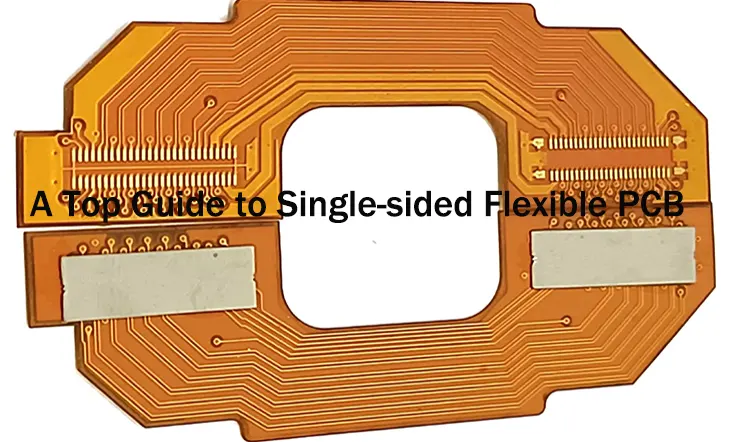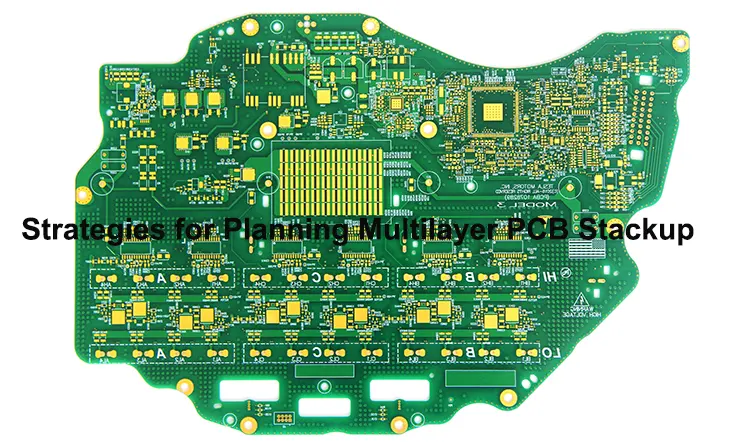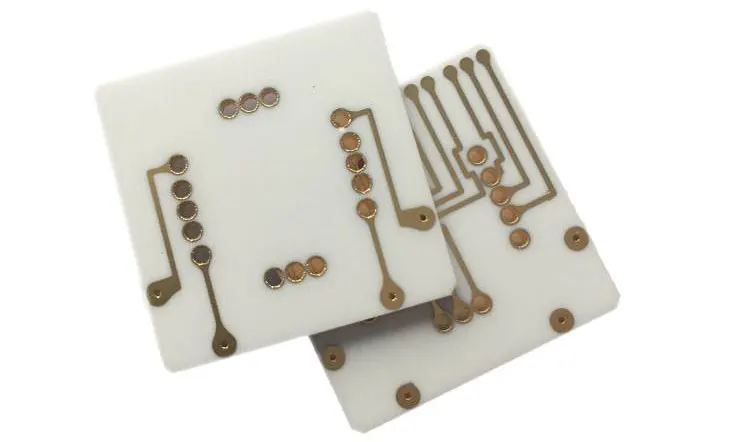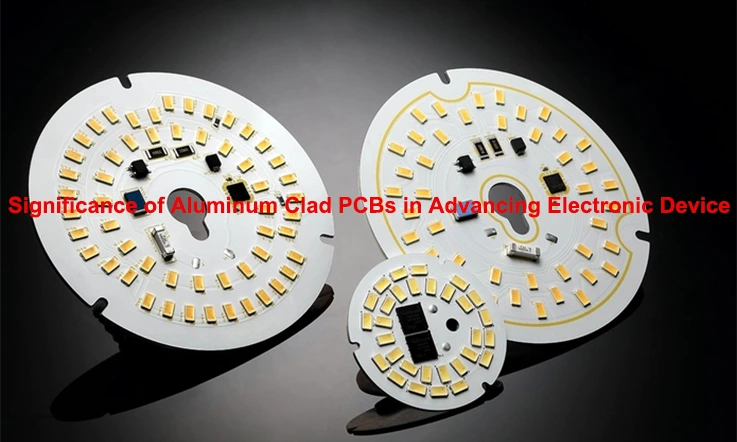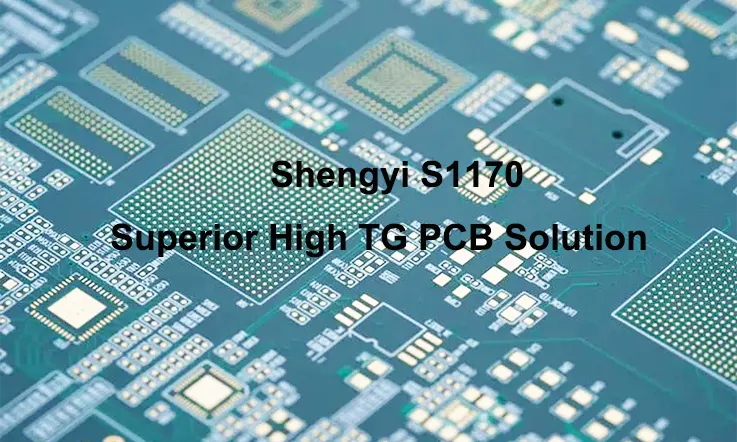
Shengyi S1170 high TG PCB materials offer a robust solution for demanding electronic applications that require exceptional thermal stability and reliability. With its high glass transition temperature (TG), outstanding electrical properties, and mechanical strength, S1170 empowers industries with cutting-edge technology. This article explores the key features, limitations and challenges of Shengyi S1170, highlighting its significance in achieving high-performance PCB Manufacturing.
Overview of Shengyi S1170 High TG PCB Materials
Shengyi S1170 is a high TG (glass transition temperature) PCB material that is designed to withstand high temperatures and provide excellent thermal performance. It is commonly used in high-frequency and high-speed applications where thermal management is crucial.
The S1170 material is known for its high thermal conductivity, low dielectric constant, and low dissipation factor, making it an ideal choice for applications that require reliable performance under high temperatures and demanding operating conditions.
The S1170 material is also known for its excellent dimensional stability, which helps to prevent warping and distortion of the PCB during the manufacturing process and throughout its service life. This makes it a reliable choice for applications that require precise and stable electrical performance.
Overall, Shengyi S1170 high TG PCB materials are well-regarded for their high thermal performance, excellent electrical properties, and reliability under extreme conditions, making them a popular choice for a wide range of high-performance electronic applications.
What Materials make of Shengyi S1170?
Shengyi S1170 PCB laminates typically consist of several key materials that contribute to their performance and properties. These materials may include:
1. Resin System: The resin system used in S1170 PCB laminates is often a high-performance epoxy resin. This resin provides the laminate with excellent thermal, mechanical, and electrical properties.
2. Reinforcement Materials: S1170 laminates commonly incorporate reinforcement materials such as woven glass fiber or non-woven aramid fiber. These reinforcement materials enhance the mechanical strength, dimensional stability, and rigidity of the laminate.
3. Copper Foil: Copper foil is an essential component in PCB laminates, providing the conductive pathways necessary for electronic circuits. The copper foil is often bonded to the laminate using an adhesive layer.
4. Additives: Various additives may be included in the S1170 laminate formulation to enhance specific properties, such as thermal stability, flame retardancy, and adhesion.
The specific composition and formulation of Shengyi S1170 PCB laminates may vary based on the product’s intended application and performance requirements. However, the materials listed above are the primary components commonly found in high-quality PCB laminates.
Features of Shengyi S1170 PCB Materials
The Shengyi S1170 PCB material offers several key features that make it a popular choice for high-performance electronic applications:
1.Lead-free compatible FR-4 laminate:
The material is compatible with lead-free soldering processes, making it suitable for environmentally friendly and RoHS-compliant manufacturing.
2.High Tg 170°C (DSC):
The material has a high glass transition temperature, indicating its ability to withstand elevated temperatures without significant loss of mechanical or electrical properties.
3.Excellent thermal stability:
The S1170 material demonstrates strong thermal stability, which is crucial for applications where temperature fluctuations can impact performance.
4.Excellent anti-CAF performance:
The material exhibits excellent resistance to Conductive Anodic Filament (CAF) formation, which can occur in PCBs under certain conditions and lead to electrical failures.
5.Low Z-axis CTE:
The material has a low coefficient of thermal expansion (CTE) in the Z-axis, meaning it maintains dimensional stability under temperature variations, reducing the risk of warping or delamination.
6.Low water absorption:
The S1170 material features low water absorption, which is important for maintaining electrical and mechanical properties, particularly in high-humidity environments.
These features collectively position Shengyi S1170 PCB materials as a reliable choice for applications requiring high thermal performance, excellent electrical properties, and resistance to environmental factors.
Limitations and Challenges for Using Shengyi S1170 PCB Substrates
While Shengyi S1170 PCB substrates offer several advantages, there are also some limitations and challenges associated with their use:
1. Cost: High TG materials such as S1170 can be more expensive compared to standard FR-4 materials, which can impact the overall cost of the PCB manufacturing process.
2. Processing complexity: Some high TG materials may require specialized processing techniques, such as higher temperature lamination and drilling, which can add complexity to the manufacturing process.
3. Brittle nature: High TG materials can be more brittle compared to standard FR-4, making them more susceptible to cracking or fracturing during handling and assembly processes.
4. Compatibility with lead-free soldering: While S1170 is lead-free compatible, some high TG materials may require adjustments in the soldering process to ensure proper bonding and reliability, which can pose challenges for manufacturers.
5. Material availability: Availability of high TG materials such as S1170 may be limited compared to standard FR-4 materials, which can impact lead times and supply chain management.
6. Design considerations: High TG materials may have different material properties, such as thermal conductivity and dielectric constant, which may require adjustments in the PCB design to optimize performance.
Addressing these limitations and challenges may require careful consideration during the design and manufacturing processes, as well as potential adjustments to the assembly and handling procedures to ensure the reliability and performance of PCBs using Shengyi S1170 substrates.
Applications of Shengyi S1170 PCB Materials
Shengyi S1170 PCB materials find application in various industries and products, including:
1. High-count layer PCBs: The high thermal stability and excellent anti-CAF performance make S1170 suitable for complex, high-layer count PCBs commonly used in advanced electronic devices.
2. Computers: S1170 materials are utilized in the manufacturing of PCBs for computers, including desktops, laptops, and servers.
3. Communication equipment: The material is used in PCBs for communication devices such as cellular phones, base stations, routers, and networking equipment.
4. Precise apparatus and instruments: S1170 PCB materials are employed in the production of PCBs for precise instruments and equipment where stable thermal performance is essential.
5. Routers: The material is suitable for PCBs used in routers and networking devices due to its thermal stability and low water absorption.
These applications highlight the versatility of Shengyi S1170 PCB materials, making them suitable for a wide range of electronic products that require high-performance and reliable PCB substrates.
What Factor Consideration When Choose Shengyi S1170 in PCB Fabrication?
When choosing Shengyi S1170 for PCB fabrication, several factors should be considered to ensure the material meets the requirements of the specific application. Some key considerations include:
1. Electrical Properties: Evaluate the dielectric constant, dissipation factor, and electrical insulation properties of the material to ensure it meets the impedance and signal integrity requirements of the PCB design.
2. Thermal Performance: Consider the thermal conductivity, glass transition temperature (Tg), and coefficient of thermal expansion (CTE) of the material to ensure it can dissipate heat effectively and withstand the thermal stresses encountered during the PCB fabrication and operation.
3. Mechanical Strength: Assess the tensile strength, flexural strength, and dimensional stability of the material to ensure it can withstand mechanical stresses during fabrication, assembly, and operation.
4. Chemical Resistance: Evaluate the material’s resistance to chemicals, solvents, and environmental factors to ensure it can withstand the intended operating conditions and cleaning processes.
5. Compatibility with Manufacturing Processes: Consider the compatibility of Shengyi S1170 with the chosen PCB fabrication processes, such as lamination, drilling, plating, and etching, to ensure ease of manufacturing and consistent quality.
6. Environmental and Regulatory Compliance: Ensure that the material complies with industry standards, environmental regulations, and specific requirements for the intended application.
7. Cost and Availability: Consider the cost-effectiveness and availability of Shengyi S1170 to ensure it aligns with the project budget and timeline.
By carefully evaluating these factors, PCB designers and manufacturers can make an informed decision when selecting Shengyi S1170 for their fabrication needs.
How Many Method Test Quality for Shengyi S1170?
Shengyi S1170 is a type of high TG (glass transition temperature) PCB material manufactured by Shengyi Technology Co., Ltd. It is designed to provide excellent thermal stability and reliability for high-temperature applications.
To test the quality of Shengyi S1170 PCB boards, several methods can be employed. Here are some common quality testing methods:
1.Thermal Analysis:
This involves subjecting the PCB material to various temperature cycles to evaluate its thermal stability and performance under different temperature conditions. Thermal analysis techniques such as differential scanning calorimetry (DSC) and thermogravimetric analysis (TGA) can be used.
2.Mechanical Testing:
This includes tests to assess the mechanical strength and durability of the PCB material. Tensile strength, flexural strength, and impact resistance tests can be conducted to evaluate its mechanical properties.
3.Electrical Performance Testing:
The electrical properties of the PCB material are crucial for its functionality. Electrical tests such as dielectric constant measurement, insulation resistance testing, and impedance testing can be performed to ensure the material meets the required electrical specifications.
4.Chemical Resistance Testing:
PCB materials should exhibit good resistance to chemicals and solvents to ensure long-term reliability. Chemical resistance tests involve exposing the material to various chemicals and evaluating its resistance and stability.
5.Moisture Absorption Testing:
Moisture absorption can affect the performance and reliability of PCBs. Moisture absorption tests can be conducted to measure the amount of moisture absorbed by the material and assess its impact on electrical and mechanical properties.
How to Store S1170 Laminate Materials?
To ensure the quality and performance of Shengyi S1170 laminate materials, proper storage practices should be followed. Here are some guidelines for storing S1170 laminate materials:
1. Temperature and Humidity: Store the S1170 laminate materials in a controlled environment with stable temperature and humidity conditions. The recommended temperature range is typically between 20°C to 25°C (68°F to 77°F), and the humidity should be maintained below 50%. Avoid storing the materials in areas prone to extreme temperature fluctuations or high humidity, as it can affect their properties.
2. Packaging: Keep the S1170 laminate materials in their original packaging or use moisture-barrier bags to protect them from moisture absorption. Ensure that the packaging is sealed properly to prevent any moisture ingress.
3. Handling: Handle the laminate materials with clean and dry hands or wear gloves to avoid contamination. Avoid touching the exposed surfaces of the materials, especially the copper foils, as it can introduce oils, dirt, or moisture that may affect their performance.
4. Avoid Direct Sunlight: Store the S1170 laminate materials away from direct sunlight or sources of UV radiation. Prolonged exposure to sunlight can degrade the material and affect its properties.
5. Shelf Life: Take note of the shelf life of the S1170 laminate materials provided by the manufacturer. It is recommended to use the materials within the specified shelf life to ensure their optimal performance.
6.Inventory Management: Implement a proper inventory management system to ensure the rotation of materials based on their manufacturing date or shelf life. This helps to use the older materials first and minimize the chances of using expired or degraded materials.
Conclusion
Shengyi S1170 high TG PCB material stands out as a reliable and high-performance solution for various industries. Its exceptional thermal stability, excellent electrical properties, mechanical strength, and lead-free soldering compatibility make it an ideal choice for demanding applications. By selecting Shengyi S1170, PCB designers and manufacturers can achieve reliable and high-quality circuit boards that meet the stringent requirements of modern technology. Harnessing the advantages of Shengyi S1170 will undoubtedly contribute to the success and reliability of electronic systems.

